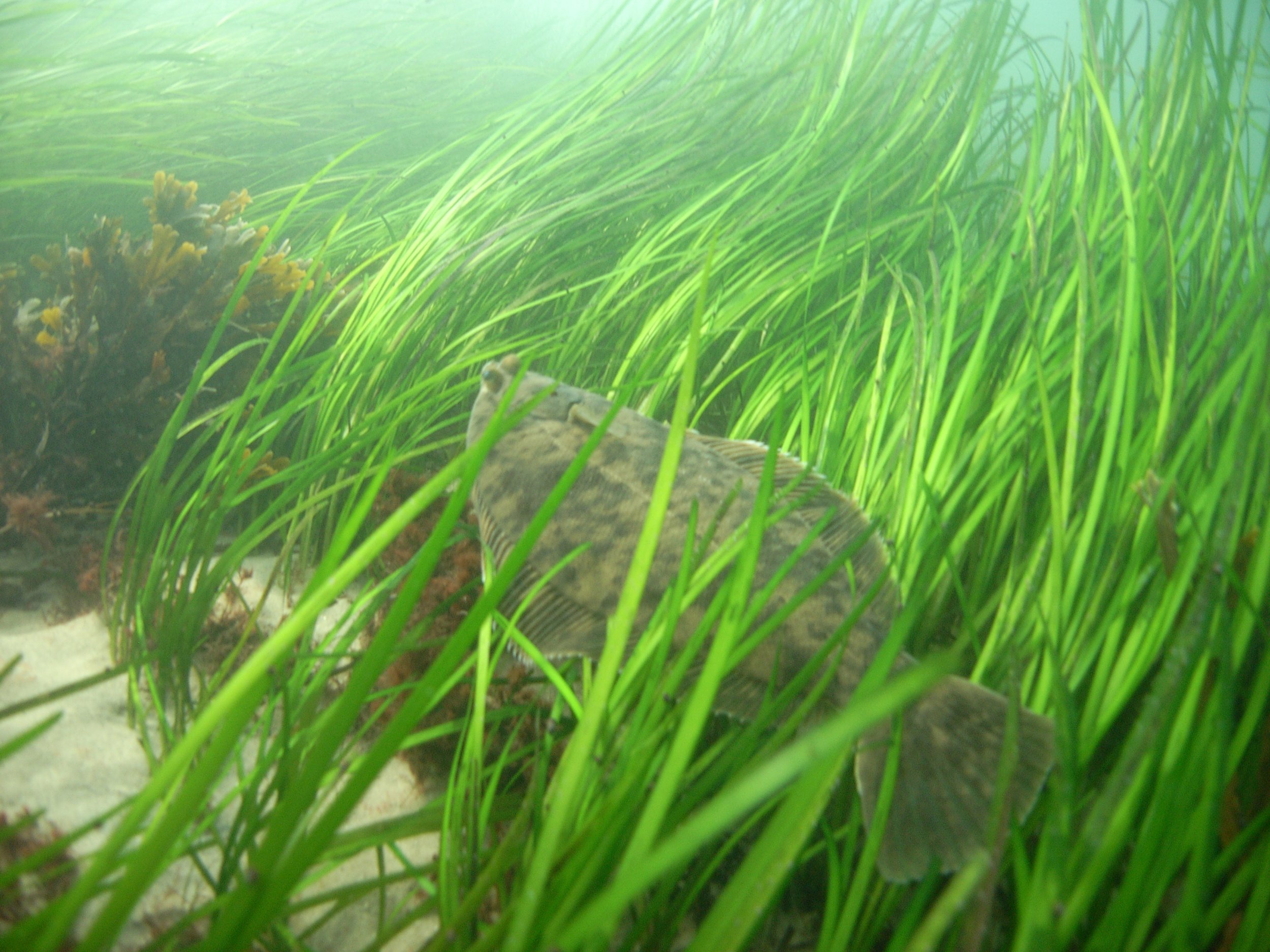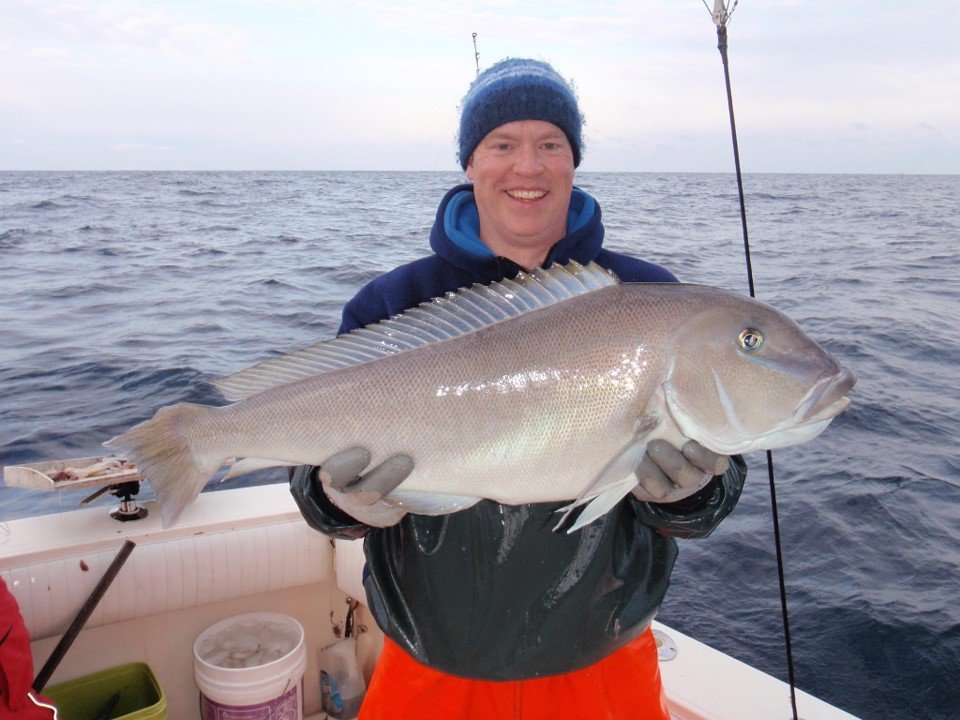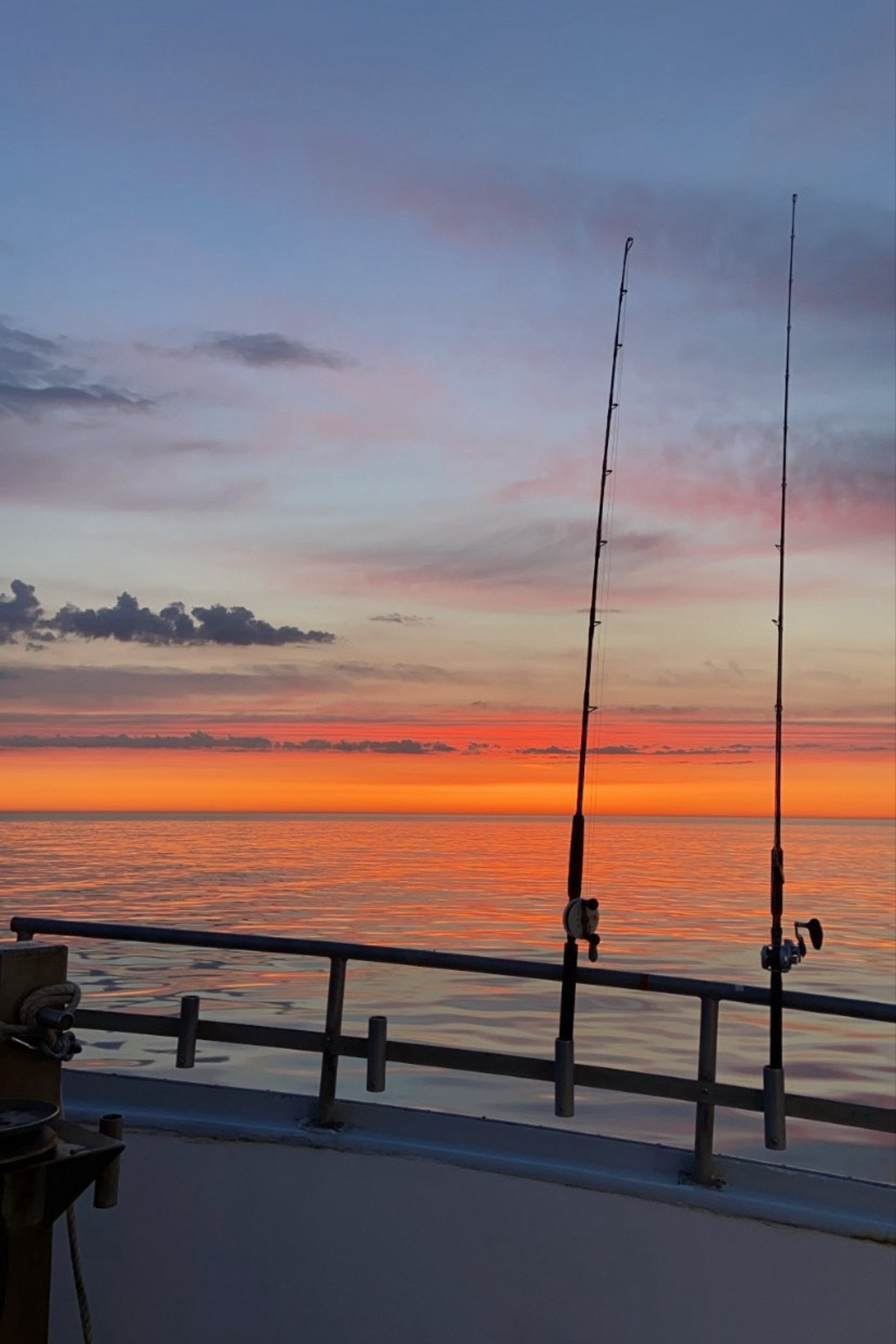The Mid-Atlantic Fishery Management Council met December 16-18, 2025, in Washington, D.C. The following is a summary of actions taken and issues considered during the meeting. Presentations, briefing materials, motions, and webinar recordings are available on the Council’s December 2025 meeting page.
PDF Download: December 2025 Council Meeting Summary
Highlights
During this meeting, the Council:
Adopted a revised rebuilding plan and 2026-2027 specifications for the Atlantic mackerel fishery
Revised a component of previously proposed changes to spiny dogfish accountability measures to align with the New England Fishery Management Council’s final action
Adopted status quo recreational summer flounder management measures for 2026-2027*
Adopted status quo recreational scup management measures for 2026-2027*
Approved a 20% liberalization in recreational harvest of black sea bass in 2026-2027*
Reviewed and provided guidance on revised draft alternatives for the Recreational Sector Separation Amendment*
Reviewed a draft range of alternatives for the Recreational Tilefish Reporting Framework and recommended several modifications
Approved a 2026 Implementation Plan
Received an overview of governance-related IRA projects across the three East Coast Councils
* Items denoted with an asterisk (*) were undertaken during joint meetings with the Atlantic States Marine Fisheries Commission’s Summer Flounder, Scup, Black Sea Bass Management Board or Interstate Fisheries Management Program Policy Board
Atlantic Mackerel Rebuilding and Specifications Framework
The Council adopted a revised rebuilding plan and 2026-2027 specifications for the Atlantic mackerel fishery. Based on a 2025 assessment showing improved stock trends, the revised plan will allow higher catches while continuing to rebuild the stock by 2032. This action reflects the Council’s efforts to expand fishing opportunities where stock conditions allow, consistent with the Executive Order on Restoring American Seafood Competitiveness.
Under the modified rebuilding plan, commercial quotas would increase to 11,237 metric tons (24.8 million pounds) for 2026 and 13,210 metric tons (29.1 million pounds) for 2027. Once approved and implemented by NOAA Fisheries, the new commercial quotas will allow substantially higher initial Atlantic mackerel trip limits, including a 200,000-pound trip limit for Tier 1 permitted vessels. While the higher quota may be implemented relatively quickly, associated trip limit changes may take longer to clear various NOAA regulatory processes.
The Council also voted to increase the federal recreational possession limit to 25 fish for private boats and 50 fish for for-hire patrons (currently 20 fish for all). The higher for-hire possession limit responds to industry comments that customers are discouraged from booking trips at lower possession limits. States may or may not increase their possession limits, and boats are subject to state rules whenever in state waters.
Atlantic mackerel assessments have regularly overestimated the number of fish entering the population in the assessment’s last year of data, referred to as the “terminal year recruitment.” To ensure the stock remains on track to rebuild even if a future assessment concludes that 2024 recruitment was lower than initially estimated, the Council’s Scientific and Statistical Committee (SSC) replaced the assessment’s very high estimate of 2024 recruitment (1.3 billion) with a much lower value based on the median recruitment from 2009 to 2023 (91 million).
The Council did not recommend any modifications to the existing 129-metric-ton (284,396 pounds) cap on incidental catch of river herring and shad (RH/S). To fully utilize the Atlantic mackerel quota, the fishery must stay below a combined RH/S bycatch rate of about 0.75% (i.e., less than one percent) on typical mackerel trips. From 2015 through 2023, this threshold was exceeded in 3 of 9 years, resulting in fishery closures in two of those years. Accordingly, the current cap continues to provide a strong incentive to avoid RH/S bycatch. The Council has also sponsored development of a RH/S bycatch risk prediction tool that will help industry identify areas where RH/S are more likely to be encountered. This tool will be available to the fleet starting in early 2026.
The Council will work with NOAA Fisheries to facilitate timely implementation of the revised quotas and trip limits. Details on pending trip limit changes and updates on the implementation process may be found on the action page for this framework.
Spiny Dogfish Accountability Measures and Specifications Framework
The Council revisited the joint spiny dogfish framework action following action taken by the New England Fishery Management Council (NEFMC). The spiny dogfish fishery is jointly managed by the two Councils, and any framework measures must be adopted by both.
The framework addresses modifications to fishery’s accountability measures and sets 2026–2027 specifications for the fishery. The Mid-Atlantic Council selected preferred alternatives and approved the framework for submission to NOAA Fisheries at its October 2025 meeting. During that meeting, the NOAA Fisheries Greater Atlantic Regional Fisheries Administrator raised concerns that aspects of the combined accountability measure approach could result in insufficient catch accountability, particularly related to the treatment of commercial landings overages. Despite these concerns, the Mid-Atlantic Council concluded that the full suite of adopted measures was appropriate to conserve and manage the fishery.
At the NEFMC’s December 2025 meeting, the Regional Administrator provided additional clarification, noting that the combination of not always paying back commercial landings overages and closing the fishery at 105 percent of the commercial quota could allow for repeated uncorrected overages. The Regional Administrator indicated that removing one of these two measures would alleviate major concerns. NEFMC ultimately adopted the same framework measures as the Mid-Atlantic Council with one exception: it did not adopt the 105 percent fishery closure provision, instead voting for no action on that measure.
Given NEFMC’s action and the requirement for consistent measures under a joint framework, the Mid-Atlantic Council reconsidered the action at its December meeting. The Council voted to align with NEFMC by not adopting the 105 percent closure measure, thus allowing the remaining elements of the framework to move forward jointly. Additional information on the final joint action is available in the Councils’ press release: Mid-Atlantic and New England Councils Take Joint Action on Spiny Dogfish Framework.
2026-2027 Recreational Management Measures for Summer Flounder, Scup, and Black Sea Bass
The Council met jointly with the Atlantic States Marine Fisheries Commission’s Summer Flounder, Scup, and Black Sea Bass Management Board (Board) to discuss 2026 and 2027 recreational management measures (i.e., bag, size, and season limits) for summer flounder, scup, and black sea bass. For all three species, the Council and Board followed the Percent Change Approach as outlined in Framework 19/Addendum XXXVI. The first step of the Percent Change Approach is to compare the upcoming two-year average recreational harvest limit (RHL) to a confidence interval around an estimate of expected harvest in the upcoming two years if the current measures were to remain in place. The Recreation Demand Model developed by the Northeast Fisheries Science Center was used to calculate the estimates of harvest under current measures and the associated confidence intervals. The Percent Change Approach also requires consideration of biomass compared to the target level when determining the required overall percent change in expected harvest.
Summer Flounder
The Council and Board agreed the Percent Change Approach requires no change in recreational harvest of summer flounder in 2026 and 2027. This is because the 2026-2027 RHL (8.79 million pounds) falls above the confidence interval around estimated harvest for these years, and stock biomass is greater than 50% but less than 90% of the target level.
The Council and Board approved the use of regional conservation equivalency in 2026 and 2027. Non-preferred coastwide measures, which are written into the federal regulations but waived in favor of state measures, include an 18.5-inch minimum size, 3 fish possession limit, and open season from May 8-September 30. Precautionary default measures include a 20-inch minimum size, 2 fish possession limit, and open season from July 1-August 31. These measures are only intended to be used for states/regions which do not comply with the conservation equivalency process.
Under the no change in harvest outcome, the current measures are expected to remain in place for states/regions in 2026. Measures for 2027 will be reviewed in 2026 but are expected to remain unchanged unless new information suggests a major change in the expected impacts of those measures on the stock or the fishery. If states/regions would like to make minor changes to their 2026 measures (e.g., to maintain a Saturday opening), those changes will need to be approved through the Commission process in early 2026.
Scup
The Council and Board agreed the Percent Change Approach requires no change in recreational harvest of scup in 2026 and 2027. This is because the average 2026-2027 RHL (12.38 million pounds) falls below the confidence interval around estimated harvest for these years, and the stock is greater than 150% of the target level.
Under the no change in harvest outcome, the Council and Board agreed to status quo federal water measures. Status quo state water measures are also expected to remain in place in 2026. Measures for 2027 will be reviewed in 2026 but are expected to remain unchanged unless new information suggests a major change in the expected impacts of those measures on the stock or the fishery. If states would like to make minor changes to their 2026 measures (e.g., to maintain a Saturday opening), those changes will need to be approved through the Commission process in early 2026.
Black Sea Bass
The Council and Board discussed application of the Percent Change Approach for setting 2026 and 2027 recreational measures for black sea bass, including consideration of the appropriate confidence interval. When viewed as a percentage range around the median, the updated confidence interval for black sea bass is much wider than those for summer flounder and scup. It is also wider than the confidence intervals used in the past for all three species. The degree of this difference was not anticipated prior to the availability of updated Recreation Demand Model results but can be explained by differences in the input data. Specifically, the black sea bass stock assessment recently transitioned to the Woods Hole Assessment Model (WHAM), which characterizes uncertainty differently than the assessment model structure used for black sea bass in the past and currently used for summer flounder and scup.
Council and Board members emphasized that Framework 19/Addendum XXXVI calls for consideration of the appropriate confidence interval methodology each specifications cycle. In addition, the Recreation Demand Model, as well as stock assessment models and projections, continue to evolve and improve over time. The Council and Board tasked staff to plan a more comprehensive review of confidence interval methods for all three species to better inform future decision-making.
The Council and Board discussed that use of the prior confidence interval method would have resulted in no liberalization for black sea bass in 2026 and 2027, while a slightly narrower interval would have resulted in a 39 percent liberalization. The Council and Board ultimately approved a 20 percent liberalization. They agreed this is appropriately precautionary, especially as harvest would still be expected to be below the 2026-2027 RHL and biomass has been increasing and has been well above the target level for more than a decade. Consistent with the Percent Change Approach, the 20 percent liberalization will be implemented in 2026, with 2027 measures remaining unchanged unless new information suggests a major change in the expected impacts of those measures on the stock or the fishery.
The Council and Board also agreed to waive federal waters measures in favor of state waters measures, as has been done for black sea bass since 2022. They adopted non-preferred coastwide measures consisting of a 14-inch minimum size, a 5-fish possession limit, and a May 15–September 30 open season. These measures are intended to be waived in favor of state waters measures. Precautionary default measures remain unchanged at a 16 inch minimum size, a 2-fish possession limit, and an open season of June 1 – August 31. These measures will only be implemented if needed for states/regions which do not follow the conservation equivalency process. Measures in individual states/regions will be determined in early 2026 through the Commission process.
Recreational Sector Separation Amendment
The Council met jointly with the Commission’s Interstate Fisheries Management Program (ISFMP) Policy Board to review and provide guidance on revised draft alternatives for the Recreational Sector Separation Amendment for summer flounder, scup, black sea bass, and bluefish. This amendment considers two main issues: 1) recreational mode management (separate for-hire and private mode management measures or strategies), and 2) for-hire permitting and reporting requirements.
The Council and Policy Board discussed questions and areas of feedback identified by the Fishery Management Action Team/Plan Development Team (FMAT/PDT). While some of these questions were addressed, the Council and Board recognized that additional stakeholder input and discussion among managers is needed in order to continue development of alternatives. The groups delayed development of a draft amendment/public hearing document in order to hold a workshop in 2026 to further refine the draft alternatives. Staff will prepare draft workshop objectives and logistics for review by the Council and Policy Board in early 2026.
In addition, the Council and Policy Board removed from consideration an option that would have required states to consider or implement state-level mode management during the recreational measures setting process. This option was removed due to concerns about potential administrative burden and stakeholder confusion. However, they intend to further explore an option that would adopt uniform guidelines and best practices for implementing mode management at the state and/or federal levels. Additional guidance is needed on guidelines and best practices that may be included, which will receive further discussion at the workshop. The workshop will also cover the remaining options related to a for-hire Letter of Authorization (LOA) program, as well as for-hire permitting and reporting requirements.
The groups also discussed, but did not approve, removing bluefish from the amendment and pursuing further development of the LOA options only for summer flounder and black sea bass. Some members also expressed concern that mode management approaches using separate allocations had been removed from the document in August and discussed whether these types of options should be discussed at the planned workshop, but rejected a motion to do so.
Recreational Tilefish Reporting Framework
The Council reviewed a modified range of alternatives for the Recreational Tilefish Reporting Framework. This action considers options to modify or eliminate the permitting and reporting requirements for private recreational tilefish anglers with the goals of reducing the reporting burden, increasing enforceability of regulations, and improving the accuracy and reliability of self-reported data.
The range of alternatives presented to the Council includes options that would either 1) eliminate the current permit and/or reporting requirements or (2) modify the required reporting fields and/or submission timeframe. An initial range of alternatives was presented to the Council during the October 2025 meeting and further refined based on Council discussion.
The Council discussed the importance of the reporting program given the current data limitations for both blueline and golden tilefish, noting that improved recreational catch data remains a major data gap. However, the Council acknowledged that the existing reporting program has not functioned as intended and that the complexity of the requirements has likely contributed to low participation and poor data quality. As a result, the Council emphasized the need to simplify reporting requirements to improve compliance and increase the likelihood of obtaining usable catch data. The Council also discussed enforceability as a key consideration, recognizing that reporting requirements that are easier to understand and enforce may improve program performance.
Several Council members expressed continued interest in obtaining tilefish length data as well as information on fishing location; however, Council members agreed that the mandatory reporting fields need to be made as simple as possible. To avoid adding complexity, the Council agreed to consider making these fields optional rather than required. The Council noted that optional reporting fields could provide opportunities to collect additional biological or spatial information without increasing the regulatory burden.
Final action by the Council is tentatively planned for April 2026. Updates on this action can be found here.
2026 Implementation Plan
The Council approved a draft 2026 Implementation Plan after making several revisions. The plan outlines anticipated work for the upcoming year in the context of the Council’s 5-year strategic plan. First, the Council added an action to evaluate and provide guidance on the use of confidence intervals and the role of uncertainty in the Percent Change Approach. The Council also agreed to add development and implementation of a mesh selectivity study for the directed Atlantic mackerel fishery to the “Possible Additions” section of the plan, which includes tasks the Council may work on if time and resources allow. In addition, the Council moved review of revised MRIP Fishing Effort Survey data (including associated allocation changes) to the Possible Additions section. Finally, the Council removed a potential action related to development of an omnibus framework for ACL specification regulations and instead requested that the Greater Atlantic Regional Fisheries Office Regional Administrator address this issue through Magnuson-Stevens Act Section 305(d) rulemaking.
Inflation Reduction Act (IRA) Governance Projects
The Council received an overview of the governance-related IRA projects across the three East Coast Councils. The New England, Mid-Atlantic, and South Atlantic Councils all have at least one IRA project that will review, evaluate, and potentially recommend modifications to cross-jurisdictional governance processes, advisory body structure and use, and cooperative management agreements. Many of these projects are underway with contractors conducting the work on most project components. A significant amount of work is anticipated in 2026 and Council members, advisors, and staff will be involved in a variety of activities throughout the year to offer their feedback and perspectives to help address the project objectives.
Next Council Meeting
The next Council meeting will be held by webinar February 10-11, 2026. A complete list of upcoming meetings can be found at https://www.mafmc.org/council-events.







